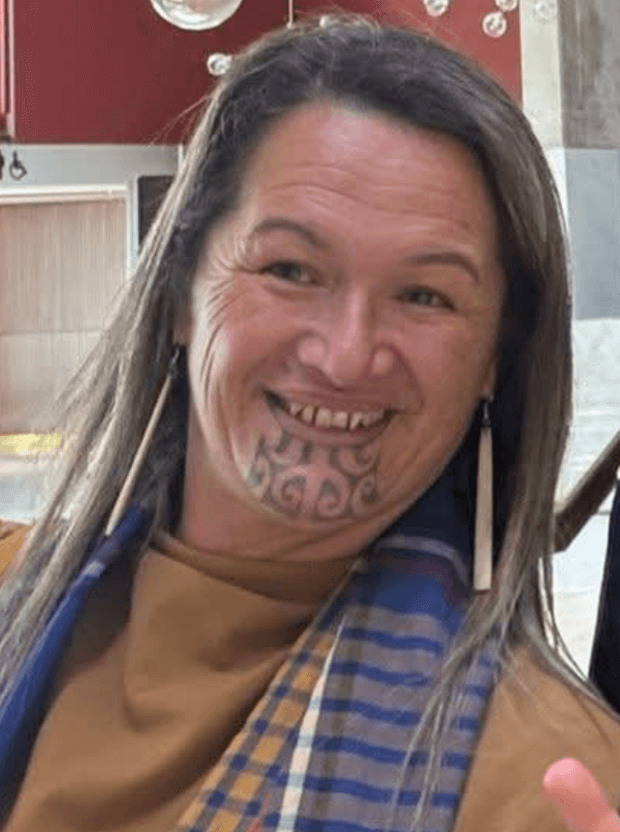
Maori Ward

Dale-Maree Morgan – 2025
Dale-Maree Morgan – Waipā Māori ward
1. Operational Deficits and Borrowing (maximum 100 words)
Waipā is currently running operational deficits over three years, which reduces the annual rates increase by around 4%. To fund this gap, the council is borrowing an average of $8 million per year.
a. Were you aware of this funding strategy?
b. Do you agree with the approach of borrowing to fund operational shortfalls as prudent rather than raising rates to fully fund current operations? Why or why not?
Borrowing can ease short-term pressure, but it’s not a permanent solution. We need clear priorities, continued cost control, honest conversations with the community about sustainable options before increasing debt or rates.
2. Ahu Ake – Waipā Community Spatial Plan (maximum 100 words)
The council has adopted the “Ahu Ake – Waipā Community Spatial Plan” as a long-term vision to guide growth and infrastructure planning.
a. Do you support the direction and priorities set out in Ahu Ake?
b. Given that the plan proposes a number of costly studies how would you ensure that it remains relevant, affordable, and aligned with community needs over time?
I support Ahu Ake’s vision for managed growth. Regular community feedback and staged projects will keep it practical and affordable while protecting what makes Waipā special.
3. Cambridge Connections (maximum 100 words)
The Cambridge Connections project reset proposes a transport network realignment and new infrastructure development around Cambridge, with potential long-term cost across the district and land use implications as well as extensive consultation.
a. Do you support the scale and scope of the Cambridge Connections project as currently proposed?
b. How should costs and impacts be managed to ensure fairness to ratepayers and affected communities?
Improving transport is important, but affordability and fairness matter. We need open consultation, staged delivery, and strong cost control so the burden doesn’t fall unfairly on ratepayers.
4. Council Expenditure and Core Services (maximum 100 words)
a. In your view, is Waipā District Council currently limiting its spending to basic or essential services?
b. If elected, would you support a review of current expenditure with a view to reducing non-essential costs and/or staffing levels?
Council should focus on essential services first. I support reviewing spending to cut waste and ensure ratepayers’ money is used wisely without sacrificing what our communities need most.
5. Urban Intensification and Tier 1 Status (maximum 50 words)
Waipā must now enable greater housing intensification and density under new rules.
What principles should guide where and how higher-density housing is developed?
Higher-density housing must fit local character, protect green spaces, and be close to transport, schools, and services. Planning should prioritise liveability and infrastructure.
6. Māori Ward Representation (maximum 50 words)
Waipā established a Māori ward to enhance Māori representation at the council table.
Do you support the continuation of the Māori ward beyond the current term?
Yes, I support continuing Māori ward representation. It’s about fairness and ensuring all communities have a voice at the table. When everyone is heard, council makes better decisions for all.
7. Community Boards (maximum 50 words)
Do you believe community boards effectively represent community views and provide valuable advice to council? Would you support any changes to their role or powers?
Community boards matter for local voices. I support keeping them strong and improving how they feed into council decisions for better results across Waipā.
8. Te Ara Wai (maximum 50 words)
What do you think the council should do with the old Bunnings building in Te Awamutu, which it bought to house Te Ara Wai Museum?
Te Ara Wai is an important cultural and historical project. Council should honour that vision by delivering a practical, community-focused facility. If full development isn’t currently affordable, an interim use that engages locals and keeps the site active would make sense while planning continues.
9. Future of Lake Karāpiro Domain (maximum 50 words)
Lake Karāpiro Domain is often referred to as Waipā’s “jewel in the crown”. The site is currently being reviewed under the Reserves Act 1977, and future options may include increased commercial development such as hotel or motel accommodation.
Hamilton City Council now charges outsiders to visit the Gardens, should Waipā do something similar at Karāpiro?
Do you support further commercial development at Lake Karāpiro Domain and/or a visitors’ levy?
Any development must protect the environment and benefit locals first. Modest, well-planned investment and possibly a visitor levy could support maintenance and lake health without overloading ratepayers.
10. Finally, what is your vision for the Waipā district? (maximum 250 words)
A district where growth is balanced with community values, culture, and environment. I see connected towns, healthy lakes, thriving businesses, and strong relationships — decisions shaped with all voices at the table for a fair, resilient future.
The stark imbalance in funding between central and local government in New Zealand. According to the Future for Local Government Independent Review report, central government currently controls 93% of all tax revenue, while local government has access to only 7%.
This disparity is a key concern raised in the report, which argues that the current funding model is unsustainable and inhibits local councils from effectively addressing community needs. The review recommends a reset in the relationship between central and local government, including:
- Annual transfers of revenue from central government to local government, such as the GST charged on rates.
- Central government paying rates on Crown property.
- Establishing place-based funding agreements to support local priorities.
- Creating a centralised climate change fund with local decision-making authority
- The report emphasizes that empowering local government financially is essential for building resilient communities, improving intergenerational wellbeing, and enabling authentic Treaty partnerships with hapū/iwi.








